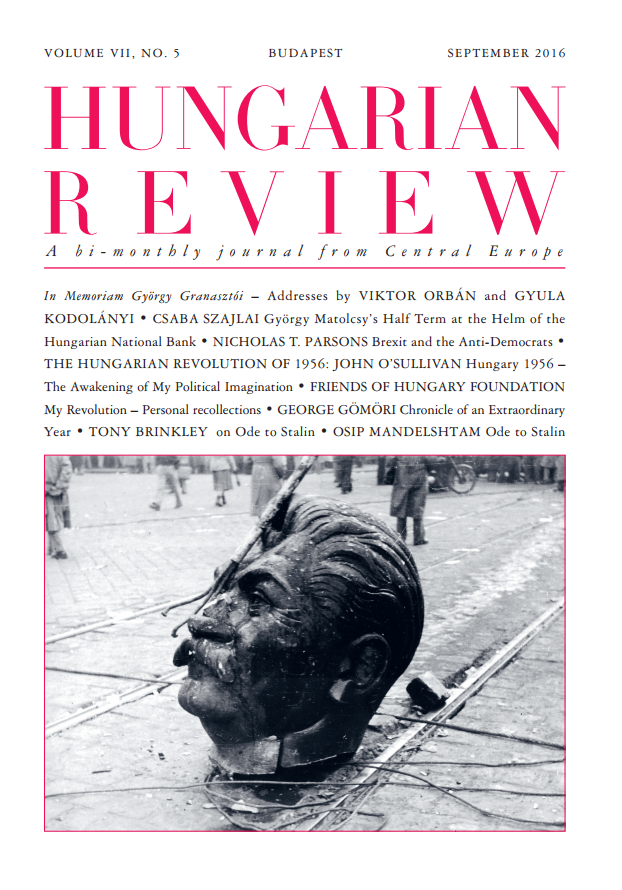A SEASON OF REMEMBRANCES
Remembrance is the theme of this Hungarian Review, and it is so to a degree we deeply regret. It was always our intention to make this issue part one of

Remembrance is the theme of this Hungarian Review, and it is so to a degree we deeply regret. It was always our intention to make this issue part one of
We have a Treaty under which there is no possibility of paying to bail out states. Angela Merkel, 2010. [As of October 2015, total approved bailout to eight EU partners
Now that György Matolcsy has completed the first half of his six-year term as President of the National Bank of Hungary (Magyar Nemzeti Bank, MNB), the chief question to be
A Proposal for the European Union Umberto Eco once observed that “The language of Europe is translation” (Eco, 1993). This witty aphorism seems particularly true for international science and scholarship,
Normally, in the United States, World War I is one of what I will call our forgotten wars. Everyone seems to remember the Revolutionary War, the Civil War, World War
Jerzy Snopek became a researcher at the Institute for Literary Studies of the Polish Academy of Sciences in 1976. From 1985 to 1990, he lectured on Polish literature at Eötvös
Hungary’s future will depend on its citizens, but who will those citizens be? What will be their mindset, who will teach them, how will they remember our past? Outside Hungary’s
Simon Hall, 1956. The World in Revolt, Faber & Faber, London, 2016 1956 was a year of change, tumult and rebellion all around the world. So many events were compressed
October/November 1956 occurred at the exact moment that I was entering both actual and political adolescence. Boys of my age — I became fourteen in April of that year —
Strictly speaking, iconoclasm refers to the destruction wrought on images by believers who think that members of their own faith have strayed from some ur-prohibition, for example the injunction against
The Asylum Appeals of Ferenc B. Farkas and Judith Maléter in November 19561 During the days of the Revolution of 1956 and the weeks following the Russian attack on 4
[H]is reproachful eyes caressed and gnawed me from his portrait.(From Mandelshtam’s Voronezh Notebooks) For many years the existence of Osip Mandelshtam’s “Ode to Stalin” was in doubt. With the publication
1 Were I to work in charcoal that would draw the highest praise –my ode to joy – its silent oscillation –I’d draw in cunning angles –anxiously, uneasily –the present
TONY BRINKLEY (Pittsburgh, 1948) is a Professor of English at the University of Maine. He has translated extensively modern Russian, German and French poetry. His poetry and translations have appeared